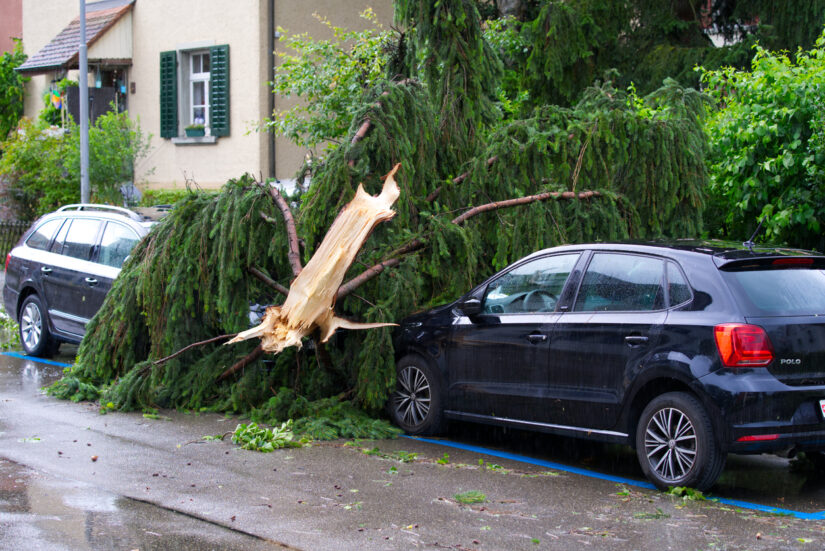October 31, 2024 | Personal Injury

Hurricane Milton, a Category 3 storm, ravished sections of Florida, tearing homes apart and destroying businesses. The storm spawned deadly tornadoes even before it came ashore, and hundreds of people had to be rescued.
Hurricanes can cause structural damage to homes, buildings, and infrastructure due to flooding, storm surges, and tornadoes. Widespread power outages can hamper rescue and recovery efforts.
Personal safety is also an issue during and after a hurricane. Individuals may be injured during the storm from high winds and destruction of buildings. However, the impact of a hurricane can continue even after it has passed. Mold, pest infestations, and home repairs are ongoing issues that may need to be addressed.
Here are some tips for protecting your property damage or personal injury claim:
Understanding Your Insurance Policy
Standard insurance policies do not include hurricane insurance. Instead, you must purchase additional insurance coverage for hurricane damage. For example, you can purchase additional property damage coverage for windstorms, flooding, loss of use, and contents coverage.
Understanding the complex legal language of an insurance policy can be challenging. A property damage attorney can help you review your policy to determine coverage terms, deductibles, exclusions, and conditions.
Preparing for a Hurricane in Florida
Preparing for a hurricane should begin before hurricane season. Creating an emergency plan now helps you prepare if a hurricane warning is issued. An emergency plan includes:
- Emergency telephone numbers
- Location of the nearest shelter
- Evacuation routes
- Copies of important documents
- Plan for protecting pets
At the beginning of hurricane season, it is essential to create an emergency safety kit. If a hurricane is in the forecast, gather supplies, including water, non-perishable food, medications, pet supplies, and a go bag. Place these items in your car in case you need to evacuate quickly.
Make a property list. Include a description of each item, the serial number, and other information to assist in valuing the items on your property. If possible, take pictures of the items. This list will be useful if you need to file a property damage claim after a hurricane.
You should also prepare your home if a hurricane is forecast for your area. Steps to prepare your home include:
- Clear your yard.
- Cover doors and windows with plywood.
- Know how to turn off the electricity in case your home begins to flood.
- Move items to a higher floor if possible.
- Fill clean water containers with drinking water.
- Move vehicles to your garage if possible.
- Keep your cell phone and other devices fully charged.
- Fill your gas tank because gas could be scarce after a hurricane.
It is crucial to listen to local authorities for instructions to evacuate. If you are told to evacuate, do so as soon as possible. Staying home could place you and your family at risk. If you evacuate, unplug appliances, and turn off gas, water, and electricity.
Steps You Should Take After Personal Injury From a Hurricane
You or your family members may be injured during a hurricane. If so, do what you can to treat your injuries and prevent further injury. You should also:
- Seek immediate medical treatment as soon as possible.
- Document your injuries and the accident scene by taking photographs.
- Ask witnesses for their names and contact details.
- Report your injury to the appropriate parties.
- Keep detailed records of your medical bills and other expenses.
If another party is responsible for your injuries, you may be entitled to compensation for economic or non-economic damages. A personal injury lawyer can review your case and advise you of your legal options.
After a Hurricane – Preparing to File Claims
It is time to evaluate and document your damage. Steps you should take include:
- Document everything that was damaged.
- Take steps to prevent further damage or injury after photographing the damage. Keep receipts for the costs of the emergency repairs.
- Throw away damaged items (due to flooding) that can create a health risk.
Notify your insurance company immediately. Most insurance companies require their policyholder to notify them within a certain timeframe after the occurrence of property damage. The insurance company should assign an insurance adjuster to evaluate the damage, determine if you have coverage, and negotiate a settlement.
Remember, a claims adjuster is not on your side. They protect the insurance company. Therefore, do not trust the adjuster to offer you a fair settlement amount. Instead, obtain an independent estimate to negotiate a settlement.
Contact Our Personal Injury Law Firm in Florida
If you’ve been injured in an accident, please contact our experienced personal injury lawyers at Graves Thomas Rotunda Injury Law Group to schedule a free consultation today. We have three convenient locations in Florida, including Vero Beach, St. Petersburg, and Port St. Lucie.
Graves Thomas Rotunda Injury Law Group – Vero Beach
2651 20th St
Vero Beach, FL 32960
(772) 758-1966
Graves Thomas Rotunda Injury Law Group – St. Petersburg
200 Central Ave Suite 304
St. Petersburg, FL 33701
(772) 569-8155
Graves Thomas Rotunda Injury Law Group – Port St. Lucie
10805 SW Tradition Square Unit 024A
Port St. Lucie, FL 34987
(772) 677-0373
